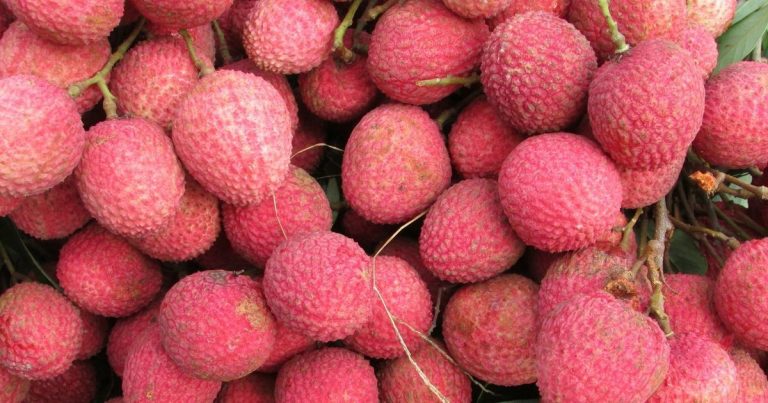Since, to sustain life the various parameters (blood sugar level, heart beat, pH etc.) must remain within a certain range. If due to any sudden stimuli any one of the vital parameter is forced to suddenly either shoot up OR dip down, for Ex. if sugar levels shoot up too much Hyperglycemia may results OR if sugar levels dip down too much results Hypoglycemic coma. If Heart beat suddenly goes up due to any tragic emotional reason heart may skip heart beats. We humans are not adapted to sudden change of environmental changes. The problem becomes more acute if the subject is undernourished as well. This general observation partly explain the tragic happening due to Litchi intake.
A small red fruit LITCHI grown in Bihar’s Muzaffarpur and eaten widely across India is being linked to the death of at least 150 children’s in the North Indian state, triggering panic. According to report presence of some toxins in the litchi, a fruit native to China, is believed to have cause common brain disease in children with high mortality are Meningitis, Encephalitis and Encephalopathy. The three have clear cut differentiation and treatment.
Meningitis– inflammation of the membrane (meninges) surrounding your brain and spinal cord.
Encephalitis– inflammation of the brain
Encephalopathy– means brain disease, disorder or damage.
An easy diagnostic term covering all three “Acute Encephalitis Syndrome”.
The outbreak of encephalitis takes place every year during the summer months in Bihar, the time the fruit is cultivated, but this year’s rising death toll has been alarming. Meningitis caused by virus or Bacteria, encephalitis (mostly Japanese Encephalitis) caused by virus, transmitted by culex mosquitoes, Encephalopathy caused by Bacteria. Encephalopathy is biochemical in origin and hence very different from the rest. There are different types of encephalopathy. In present case the encephalopathy is associated with Hypoglycemia and hence called Hypoglycemic Encephalopathy.
The early morning onset and frequent finding of low blood glucose level (Hypoglycemia) point to a biochemical disease related to glucose metabolism. In early morning body tends to develop hypoglycemia. If the fasting interval is longer than 6-7 hours, because some children were not given a night meal, the situation becomes more sever.
Where do Litchi fit in ?
Fruit, which is divided into pulp and seed, litchi pulp was found to contain an unusual amino acid called hypoglycin-A or Methylene Cyclopropyl Glycin (MCPG). Which is a naturally occurring fruit based toxin that was responsible for causing hypoglycemic encephalopathy. Early morning it is normal for blood sugar to dip after several hours of no food intake. Undernourished children who had gone to sleep without a meal at night develop hypoglycemia. The brain needs normal levels of glucose in the blood. In undernourished kids, the liver is unable to supply the need, so the alternate pathway of glucose synthesis, called Fatty acid oxidation, is turned on. However that path may get blocked by MCPG. As a result, no glucose is generated and the low blood glucose level is not corrected by the body. This leads to drowsiness and even unconsciousness. WHEN THE TOXIN STOPS THE FATTY ACID CONVERSION INTO GLUCOSE MIDWAY, AMINO ACIDS ARE RELEASED WHICH ARE TOXIC TO BRAIN CELLS. The amino acid cause brain cells to swell resulting in brain oedema. As a result, children may suffer from convulsions, coma and death.
Hypoglycemic encephalopathy can be prevented by making sure that undernourished children do not eat plenty of litchi fruit, ensuring that they eat some food and not go to bed on an empty stomach.
The treatment is possible by a specialist for more techno-medico details go to the link given below.
Don’t blame the litchi
https://indianexpress.com/article/opinion/columns/aes-outbreak-death-toll-bihar-muzaffarpur-5811732/

